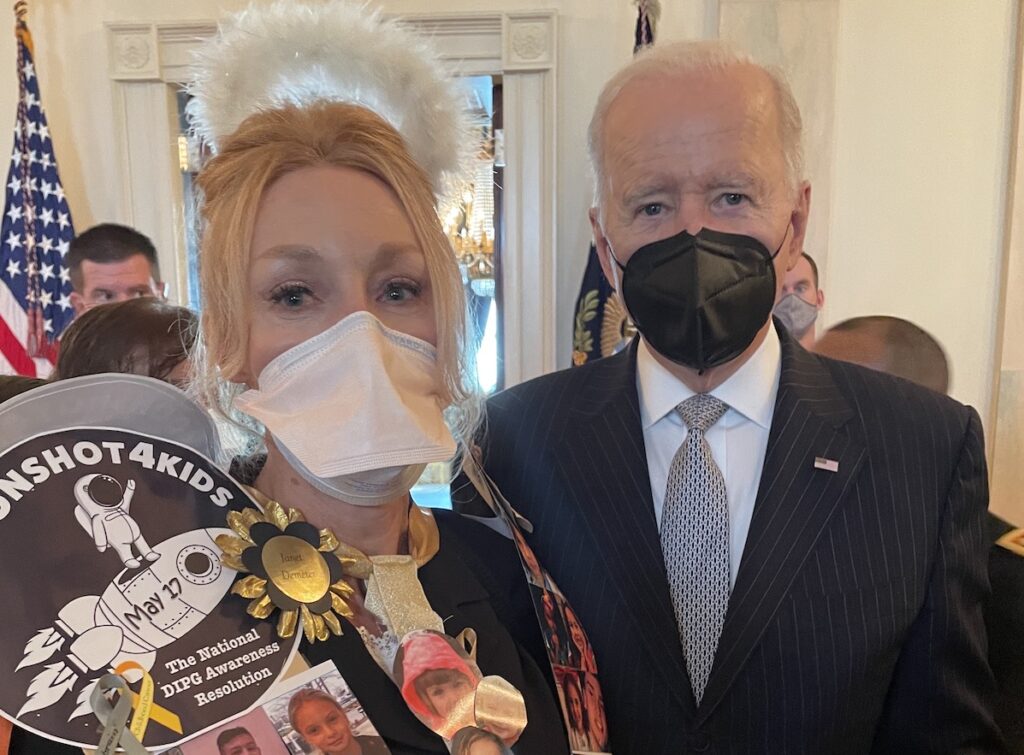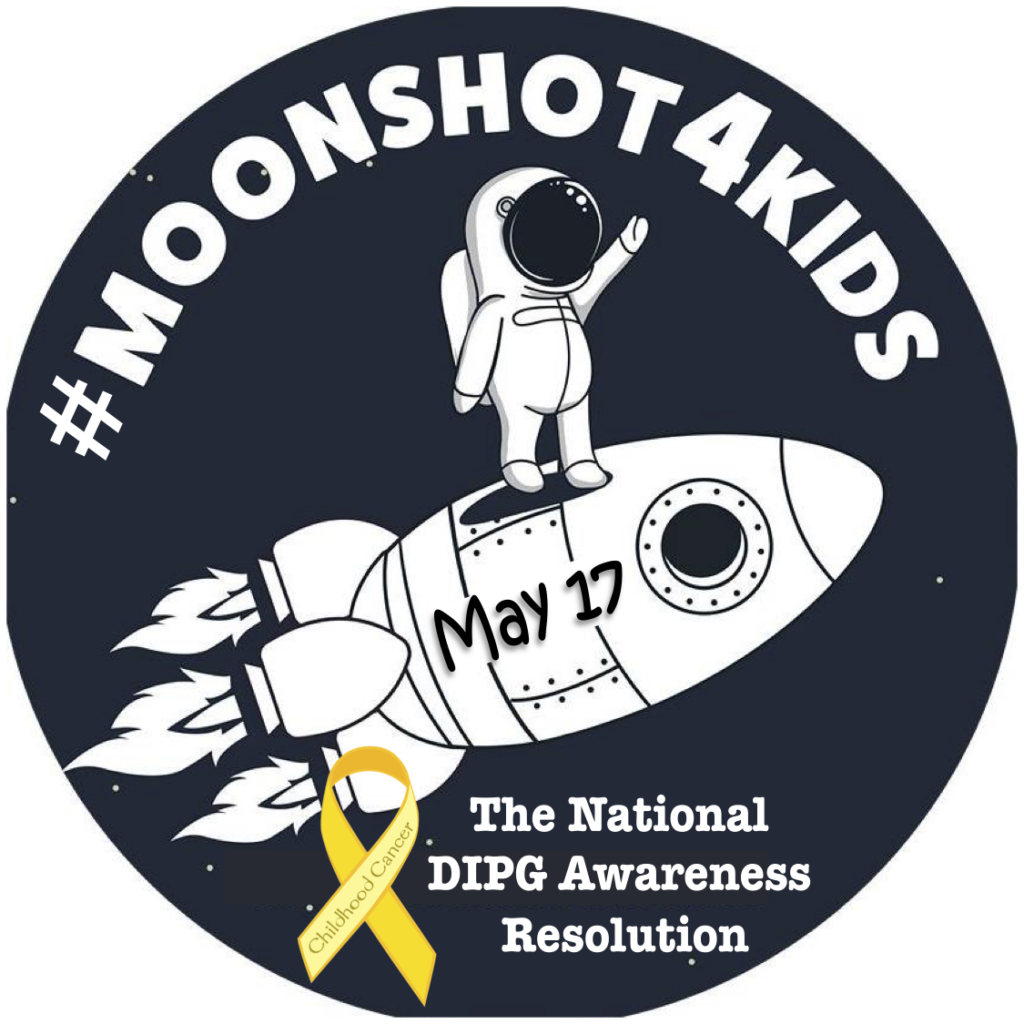“Our kids don’t deserve a death sentence.” Make childhood cancer history with us!
Spearheading the Childhood Cancer Awareness Movement with the DIPG Awareness Resolution
The DIPG Awareness Resolution is about to be re-introduced to the House of Representatives! If you’d like to help support this process, visit the Advocate with US page for instructions and supportive documents. Rep. Debbie Dingell (D-MI-6) is leading this effort with Rep. David Joyce (R-OH-14). The resolution raises awareness for pediatric brain cancer, the leading disease-related cause of childhood mortality in the US, using the powerful example of DIPG, the leading cause of pediatric brain cancer deaths. It suggests that pediatric and high-mortality rate cancers have greater consideration in the research grant process, and suggests that federal funding for childhood cancer research be increased to accommodate the unmet medical needs of children.
Did you know that brain/CNS tumors lead in childhood cancer incidence and childhood cancer deaths? DIPG, diffuse intrinsic pontine glioma, is perhaps the deadliest of them all, responsible on its own for a significant portion of the annual childhood cancer death toll, a fact of which most remain uninformed. The experience of DIPG is a terrible wake-up call: with no effective solutions, we discover that “investment justification” and corporate interests matter more in the world of medical research than the urgency to save our children’s lives, even with available resources and willing, caring physicians and research scientists. DIPG exemplifies in a profound way the experience that so many children with cancer and their families endure–to watch their children die in utter helplessness with few if any, out-dated, ineffective therapies available in the wealthiest country in the world because, “the numbers aren’t great enough for investors.”
We don’t invest adequately in our children. There is no excuse.
for the history of the resolution: H. RES. 416 Press Summary. The New Letter to Congress is coming soon!
- The 6th introduction, May 16, 2025 in the House of Representatives of the National DIPG Awareness Resolution, is coming! Please urge your Representative to sign on to acknowledge the urgent, unmet medical needs of children with cancer.
- The US Senate introduction of the 2025 DIPG Pediatric Brain Cancer Awareness Resolution is coming! Please call your Senator’s DC and field offices to ask him or her to support it! Senator Reed is introducing, so please forward Senate correspondence to his office!
Our kids don’t deserve a death sentence, and our parents don’t deserve to hear that they have to watch their children die because of contrary investment values in the wealthiest country in the world.
For nine years, with the DIPG Awareness Resolution we have attempted to gain the acknowledgement of our government officials of the urgent, unmet medical needs of children with cancer. We have made much progress, but still no attention granted on the floor of the House of Representatives–which would draw the needed attention, and education needed for a cure within 2 years instead of 10+ years… and never was there a televised, public statement with the Cancer Moonshot that cancer is the leading disease-related cause of deaths in American Children. The experience of DIPG powerfully demonstrates the urgent need for our children to be accommodated rather than marginalized by the medical research investment culture.
However, the resistance to this acknowlegement is real, even among the ranks of upper-level civilian advocacy and government relations. We are activists with one goal: to shine a national spotlight on the suffering and deaths of our children amid ample resources, that a cure may be accelerated.
Dr. Michelle Monje speaks to the importance of DIPG and childhood brain cancer awareness to accelerate efforts toward finding effective therapies for the afflicted.
DIPG Advocacy Group at the 2/2/22 Announcement of the New Cancer Moonshot!

H. RES. 416

Rep. Brian Fitzpatrick, author of the Fairness to Kids with Cancer Act, on the importance of funding for pediatrics: